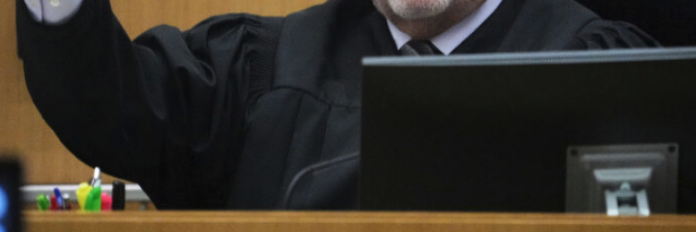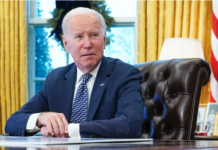The “fake electors” saga in Arizona just took another twist, with Judge Bruce Cohen stepping aside after emails surfaced that revealed some shockingly biased rhetoric.
Cohen, who was overseeing the high-profile case against 18 Republicans—including Trump allies like Rudy Giuliani, Mark Meadows, and Kelli Ward—abruptly recused himself this week after his emails came to light, courtesy of Arizona State Speaker Pro Tempore Rep. Travis Grantham.
So, what’s in these emails? In a nutshell, Judge Cohen was caught venting about criticism of Vice President Kamala Harris, whom he felt needed defending against “racist” and “sexist” attacks. And he didn’t just express support for Harris—he went so far as to equate her critics to Nazis and urged his fellow judges to push back against those questioning her credibility. Cohen’s message? That judges, especially those who are white or male, should actively defend Harris and others from what he labeled “DEI hire” comments.
Cohen’s emails, however, didn’t sit well with the defense attorneys in the “fake electors” case. Lawyers for Arizona state Senator Jake Hoffman questioned whether a judge with such a clearly partisan mindset could really be trusted to be impartial in a case that’s politically charged from top to bottom. Their concern was simple: how can a judge presiding over a case involving Trump allies and GOP figures possibly offer a fair trial when he’s openly vilifying their political views?
The fallout was swift. Cohen issued an apology, admitting that his “passion clouded his judgment” and that he “used this forum improperly.” But apparently, the backlash wasn’t over. This week, he decided to recuse himself entirely, acknowledging that even the appearance of bias could undermine public trust in the judiciary.
NEW: The judge overseeing the Arizona “fake elector” case against several of Donald Trump’s allies has recused himself from the case after accusations of personal bias.
Last week, defense attorneys for State Senator Jacob Hoffman filed a motion to disqualify Judge Bruce Cohen,… pic.twitter.com/QImupqJH24
— Melissa Hallman (@dotconnectinga) November 13, 2024
This incident shines a bright light on the partisan tension that’s riddling the judicial system. The case itself is already controversial, with nearly 20 Republicans facing felony charges for allegedly trying to put forward “alternate electors” to support Trump in 2020. To have a judge at the helm who openly champions a political cause—especially one so deeply entangled with the same issues being tried—was a recipe for trouble.
Of course, Cohen’s appointment to the bench dates back to 2005, courtesy of then-Governor Janet Napolitano, a Democrat. That connection certainly doesn’t help shake off the perception of bias here, especially with the emails showing such an activist tone. For many on the right, this episode will feel like validation for their concerns about political agendas infiltrating the judiciary, especially in cases where conservatives are already on the defense.
The trial is slated to begin in January 2026, but with the recusal, one wonders if it’s the last we’ll hear about the judge’s role or if other court officials with similar leanings will also be under scrutiny.







